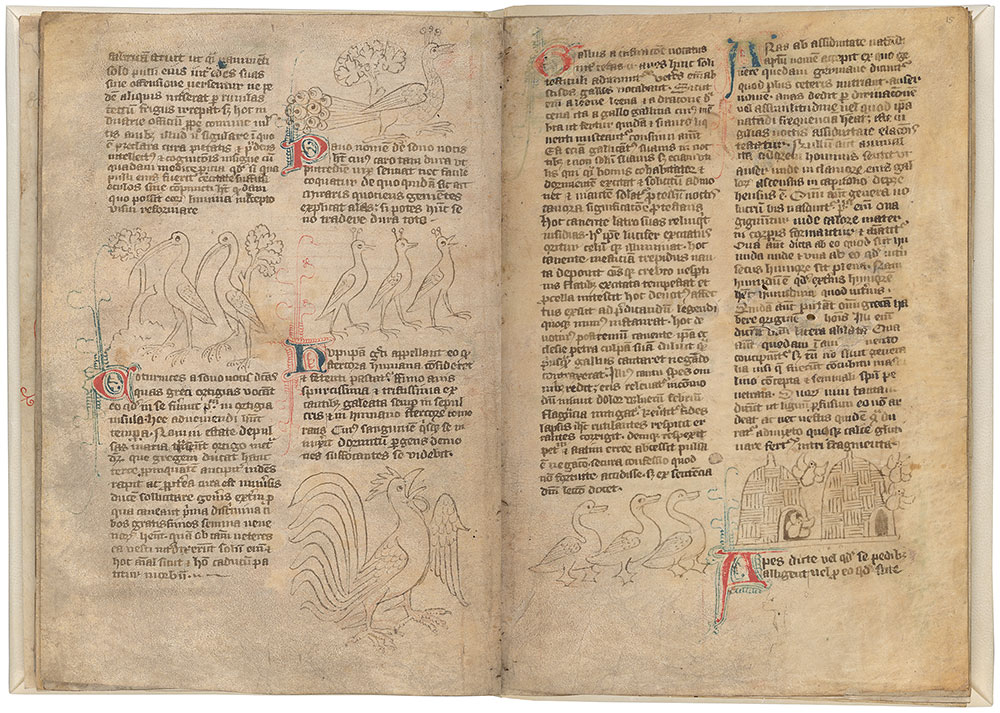
Fountains Abbey bestiary
Gift of Alastair Bradley Martin, 1958
Left Page (Fol. 14v)
Quail: The birds shown here are supposed to be quails—perhaps the length of their beaks are exaggerated to emphasize their reported habit of foraging for and consuming poisonous seeds. The quail was believed to be the only creature other than man to experience “falling sickness” (epilepsy).
Peacock: The text comments on the gem-like beauty of the peacock’s feathers, as well as its hard and difficult-to-cook flesh. It quotes from Martial’s Epigrams: “You are lost in admiration, whenever it spreads its jeweled wings; can you consign it, hard-hearted woman, to the unfeeling cook?” (xiii, 70).
Hoopoes: These birds, with “prominent crests” are hoopoes making their second appearance in the manuscript. The text tells us that they feed on human excrement, and that if you rub yourself with the blood of a hoopoe on your way to bed, you will dream of demons trying to suffocate you.
Cock: The open beak of this cock appears to have been scratched out and redrawn at a wider angle, likely to emphasize that it is in the act of crowing. The text likens the cockcrow to “the words of Jesus” announcing the end of night and bringing hope.
Right Page (Fol. 15r)
Ducks: These cheerful ducks illustrate an entry explaining that the word “duck” in Latin (anas) is connected to the fact that they are constantly swimming (natare).
Bees: Categorized as birds, the giant bees shown here were presented to medieval readers as exemplary animals that worked hard for the benefit of community and king.
